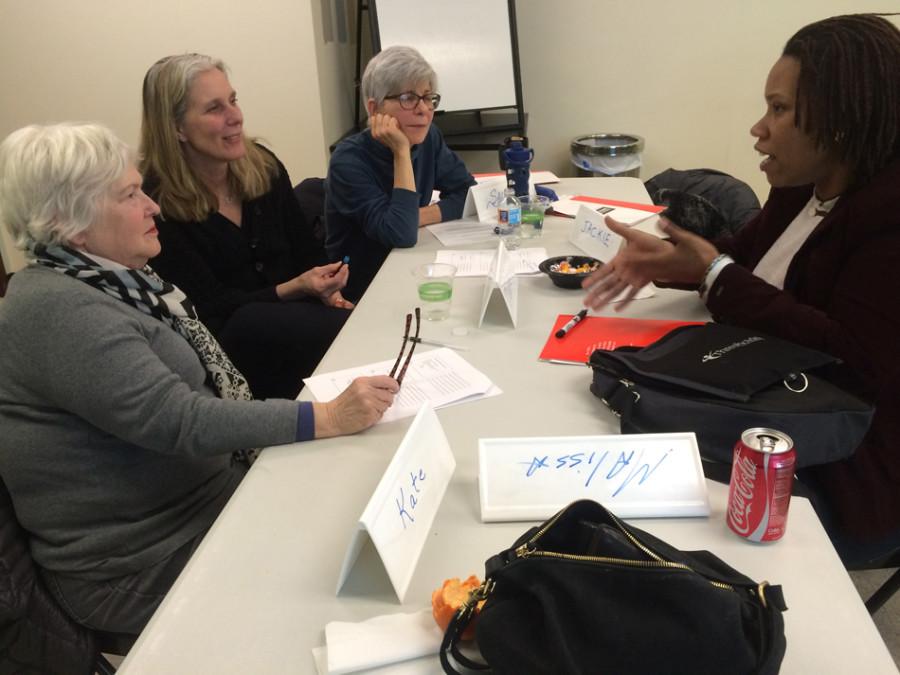YWCA facilitates conversations on racial issues
Julia Jacobs/The Daily Northwestern
Participants in the second session of YWCA Racial Equity Training discuss examples of different types of racism. The session focused on differentiating between race and racism and is part of a four-session series.
February 20, 2015
The second session of YWCA Evanston/North Shore’s Racial Equity Training focused on understanding different types of racism as part of a four-part series of dialogue surrounding racial issues.
More than a dozen people attended the session Thursday from 6:30 to 8:30 p.m. at YWCA Evanston/North Shore, 1215 Church St., and nine people have registered for the entire four-part series, Racial Justice Program Director Eileen Hogan Heineman said. Heineman, who co-facilitated the session, told attendees that once people were able to have open conversations about race, racial equity could begin to transition from “fantasy” to reality.
“Our ultimate goal is to be able to identify that racism is part of our society and then mobilize,” Heineman said to the class. “We don’t have a history of having these conversations.”
The attendees practiced listening in pairs and discussed in small groups examples of different forms of racism, including individual, interpersonal, institutional and structural.
Because part of the YWCA’s mission is eliminating racism, the Evanston/North Shore branch decided the most compelling way to approach that goal would be to provide an opportunity for actual dialogue as well as the skills and vocabulary to engage in it, Heineman said. The facilitators spoke to the class about the distinction between race, which Heineman said has no scientific basis, and racism, which is a multi-faceted idea.
“This is not about shame or blame or guilt,” Heineman told The Daily. “It’s about learning how to do something that we’re not used to naturally.”
Pat Savage-Williams, an Evanston Township High School Board vice president and co-facilitator of the session, spoke about identifying one’s state of mind before embarking on a conversation about race. Savage-Williams, who was one of the original facilitators of the first series of the program with Heineman, said it was important to have “courageous conversations” about racial issues.
“I just hope people in the Evanston/Skokie area start having conversations about race, across racial groups,” Savage-Williams said. “I think the way to not be afraid of those conversations is to practice them.”
The first session on Tuesday, which was meant to set a foundation for communicating with people from different backgrounds, was attended by a diverse group with many people who were new to conversations about race, Heineman said.
Peace Udechukwu, an attendee who is part of a diversity team at Thresholds, a Chicago organization which provides healthcare and housing for people with mental illness, said she was attending two of the training sessions to help build a curriculum around racial issues at the organization. Udechukwu said she was most moved by the discussion of systemic and structural issues embedded in the U.S., she said.
“It’s something I’m passionate about and wanting to get a deeper knowledge about to open up the conversation and the dialogue wherever I’m at with anybody,” she said. “Yes, it’s a difficult conversation to have, but at the same time it needs to be had.”
The Feb. 24 session will focus on privilege and internalized racism, and participants in the last session on Feb. 26 will discuss how to reach racial equity. Each session costs $30 or $100 for all four.
Email: juliajacobs2018@u.northwestern.edu
Twitter: @juliarebeccaj


